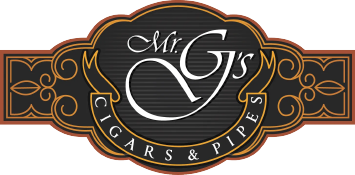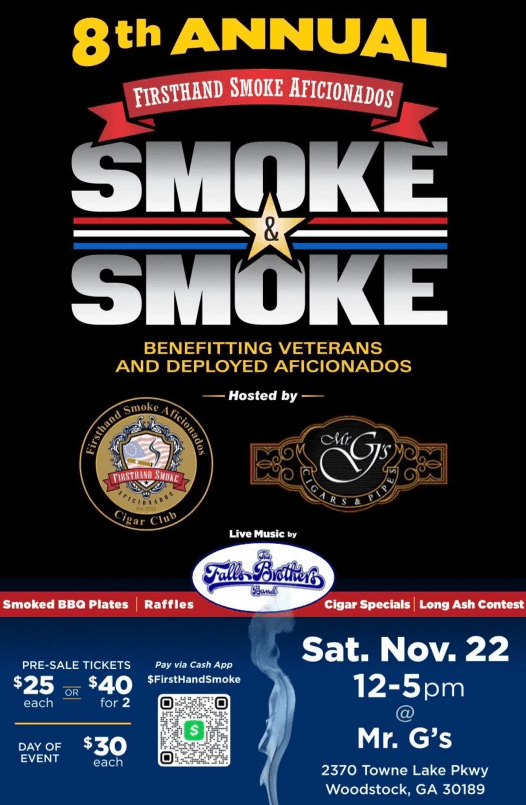In the world of cigars, there is a secret that aficionados hold dear: a hidden art that brings out the true flavors and complexities of these hand-rolled wonders. It is a technique that not only requires patience but also a deep understanding of the aging process, and it is known simply as cigar aging.
In this blog post, we delve deep into the art of aging cigars, uncovering the secrets that lie within the aging process. From the selection of the perfect cigar to the ideal conditions for aging, we leave no stone unturned in our quest for ultimate flavor.
So grab your favorite smoke, sit back, and prepare to embark on a sensory adventure like no other. Join us as we unravel the mysteries of aging cigars and discover the true artistry that lies within each puff.
Aging Cigars Like a Pro: Expert Techniques Revealed!
The Importance of Proper Cigar Selection for Aging
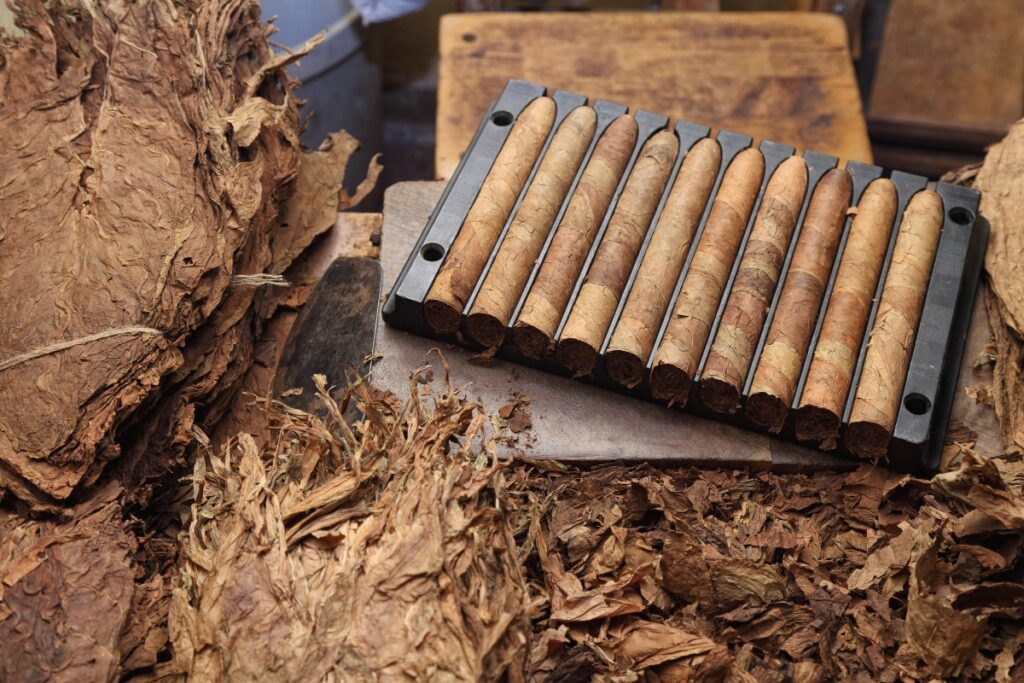
Aging cigars is an art that requires careful consideration, and one crucial aspect of this process is selecting the right cigars for aging. The importance of proper cigar selection cannot be overstated. It directly impacts the flavors, aromas, and overall quality that will develop over time.
When selecting cigars for aging, there are a few important factors to consider. Firstly, you need to choose cigars that are made from high-quality tobacco. The quality of the tobacco plays a significant role in how well a cigar will age. Look for cigars that are made from premium tobacco leaves, preferably from reputable brands or regions known for their quality tobacco production.
Another factor to consider is the construction of the cigar. A well-constructed cigar is more likely to age gracefully and develop desirable flavors. Look for cigars that are firm to the touch and have an even and smooth wrapper. Avoid cigars that have any noticeable defects or blemishes, as these may affect the aging process.
Additionally, the size and shape of the cigar can impact its aging potential. Generally, larger cigars with a thicker ring gauge tend to age more gracefully compared to smaller cigars. This is because larger cigars have more tobacco filler, which allows for a more gradual and balanced aging process. However, personal preference also plays a role here, as some enthusiasts may prefer the flavors that develop in smaller cigars.
It’s important to note that not all cigars are suitable for aging. Certain cigars are intended to be smoked fresh and may not improve with age. These are typically milder cigars with lighter flavors. To determine if a cigar is suitable for aging, consider its strength and flavor profile. Full-bodied cigars with complex flavors tend to benefit the most from aging, as the aging process can mellow out any harshness and enhance the existing flavors.
Understanding the Aging Process: Time, Temperature, and Humidity
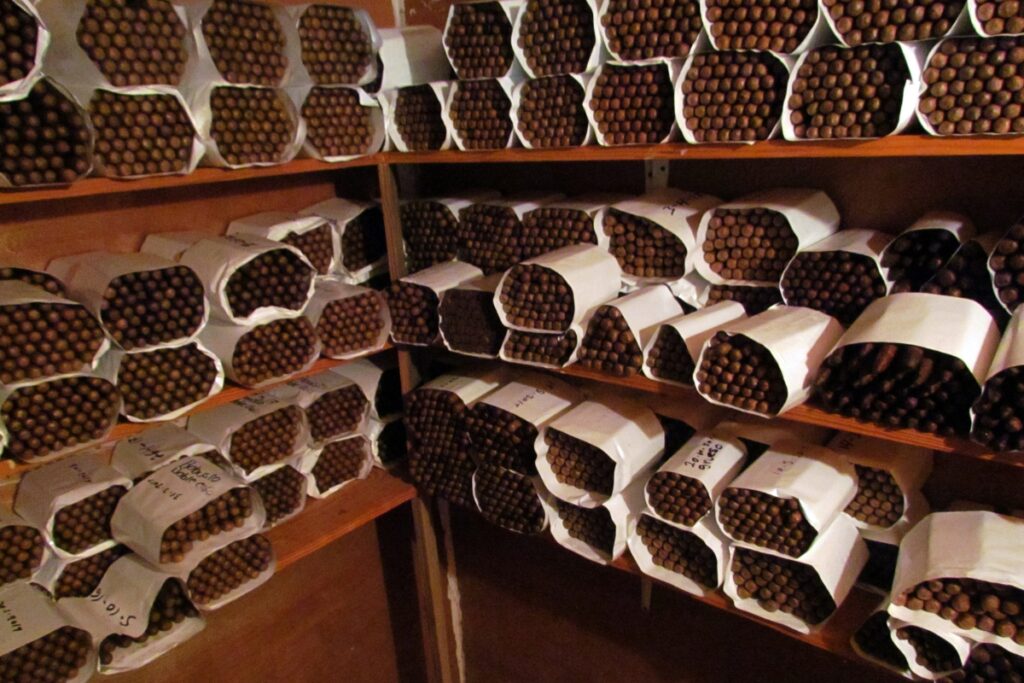
When it comes to the art of aging cigars for ultimate flavor, time, temperature, and humidity play crucial roles. Properly aging cigars requires precise control over these factors to achieve the desired taste and aroma.
Time is an essential component of aging cigars. Cigars need sufficient time to develop complex flavors and mellow out any harsh characteristics. Typically, cigars are aged for a minimum of six months to a year, but some enthusiasts prefer longer aging periods for an even smoother smoking experience. During this time, chemical reactions occur within the tobacco leaves, resulting in the release of volatile compounds that contribute to the cigar’s flavor profile.
Temperature control is vital when it comes to aging cigars. Ideally, cigars should be stored at a temperature between 65°F (18°C) and 70°F (21°C). Lower temperatures can slow down the aging process, while higher temperatures can accelerate it, potentially leading to an over-aged cigar with diminished flavors. Consistency is key, as fluctuations in temperature can cause the cigars to expand and contract, damaging their construction and overall quality.
Humidity is another critical factor that affects the aging process of cigars. Cigars should be stored in a humidity-controlled environment, with a relative humidity (RH) level between 65% and 70%. This level keeps the cigars moist enough to prevent them from drying out or becoming too wet. Proper humidity allows the tobacco to mature gradually, resulting in a more balanced flavor and improved combustion properties.
Choosing the Right Environment: Creating the Perfect Aging Conditions
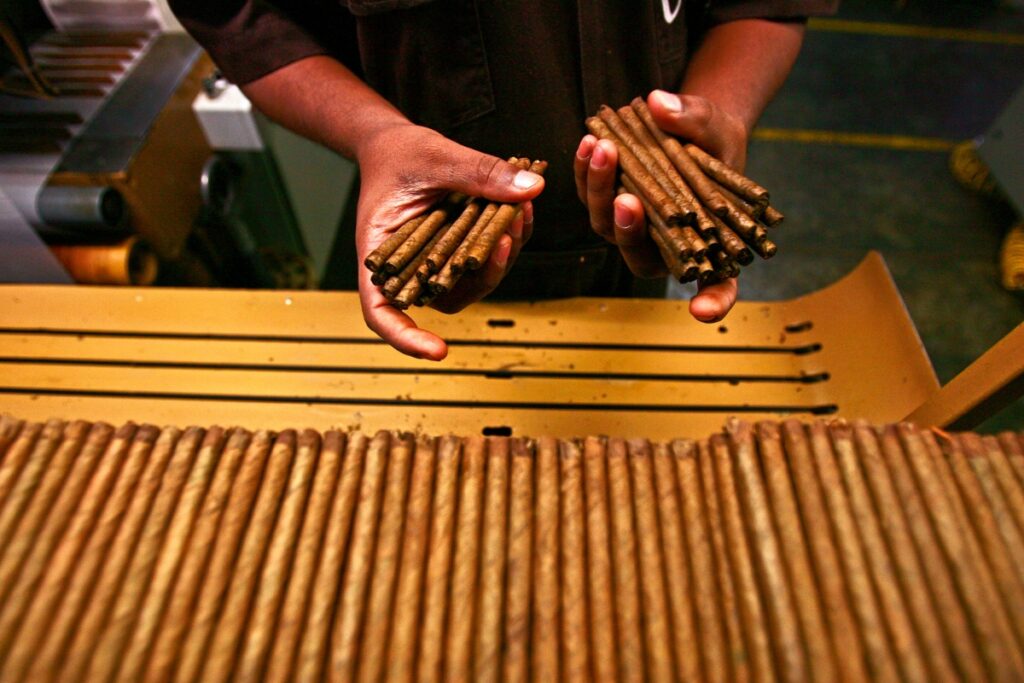
Creating the perfect aging conditions for cigars is essential to enhance their flavor and overall smoking experience. By carefully selecting the right environment, you can ensure that your cigars develop the desired flavors and complexities over time. Here are some key factors to consider when choosing the ideal aging conditions for your cigars.
Temperature control is crucial in maintaining the integrity of your cigars during the aging process. Ideally, cigars should be aged in a temperature range of 65 to 70 degrees Fahrenheit (18 to 21 degrees Celsius). This temperature range allows for a slow and gradual aging process, allowing the flavors to develop naturally without being compromised.
Humidity plays a vital role in preserving the moisture content of the cigars and preventing them from drying out or becoming too moist. The recommended humidity level for aging cigars is around 65 to 70 percent. This level of humidity ensures that the cigars remain in optimal condition and do not develop any mold or other unwanted issues.
To achieve the perfect humidity level, investing in a good quality humidor is essential. A humidor is a specially designed container that helps in regulating humidity and temperature. It provides a controlled environment for your cigars, protecting them from external factors that could impact their aging process.
Light is another critical factor to consider when aging cigars. Cigars should be stored in a dark environment to prevent the tobacco leaves from being exposed to direct sunlight, which can lead to fading or loss of flavor. The use of opaque containers or humidor cabinets can help in blocking out any unnecessary light.
Ventilation is often overlooked but plays a significant role in aging cigars. Proper air circulation within the aging environment allows for the gradual release of any unwanted gases or odors, preventing them from being absorbed by the cigars. This can be achieved by ensuring that the storage space or humidor has proper ventilation systems in place.
Finally, it is essential to choose the right location for aging your cigars. Avoid areas with extreme temperature fluctuations or high levels of humidity, such as basements or attics. Instead, opt for a cool, dark, and well-ventilated room in your home or a dedicated cigar aging facility if available.
The Role of Tobacco Varieties in Aging Cigars
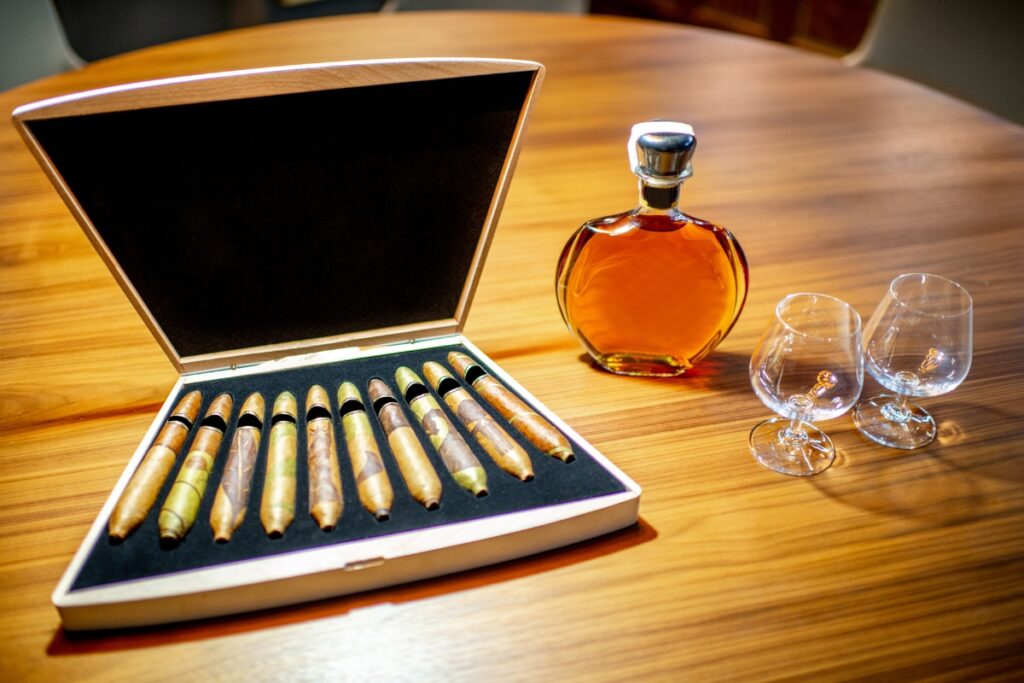
Tobacco varieties play a crucial role in the aging process of cigars. The selection of the right tobacco leaves can significantly impact the flavor, aroma, and overall quality of the final product. Different varieties of tobacco offer unique characteristics that contribute to the aging process.
One of the most popular tobacco varieties used for aging cigars is called Habano. Grown primarily in the Vuelta Abajo region of Cuba, Habano tobacco is known for its rich flavors and complex aromas. The leaves are carefully cultivated, harvested, and aged to perfection, resulting in a cigar with a deep, earthy taste and a hint of sweetness.
Another tobacco variety commonly used for aging cigars is Connecticut Broadleaf. This variety is grown in the Connecticut River Valley in the United States and is known for its dark, oily leaves. Connecticut Broadleaf tobacco undergoes a lengthy aging process, which enhances its natural sweetness and produces a smooth, mellow smoke.
In addition to these two popular varieties, there are countless other tobacco types used in the cigar aging process. Each variety brings its own unique characteristics to the table. For example, Maduro tobacco, known for its dark and oily appearance, undergoes an extended aging process, resulting in a full-bodied and rich flavor profile.
The aging process itself is crucial for developing the desired flavors in cigars. After the tobacco leaves are harvested, they go through a curing process to remove excess moisture. This is followed by fermentation, where the leaves are piled up and left to mature. During fermentation, the tobacco goes through chemical changes that help mellow out any harsh flavors and enhance the overall taste of the cigar.
The length of the aging process can vary depending on the desired outcome. Some cigars may be aged for only a few months, while others can be aged for several years. The aging conditions, such as temperature and humidity, also play a significant role in the final flavor of the cigar.
The tobacco varieties used in the aging process ultimately determine the flavor profile of the cigars. The combination of different varieties and the careful aging process result in a wide range of flavors and aromas. From mild and creamy to bold and spicy, aged cigars offer a diverse smoking experience for enthusiasts.
Storage and Aging: Humidors, Aging Rooms, and Other Options
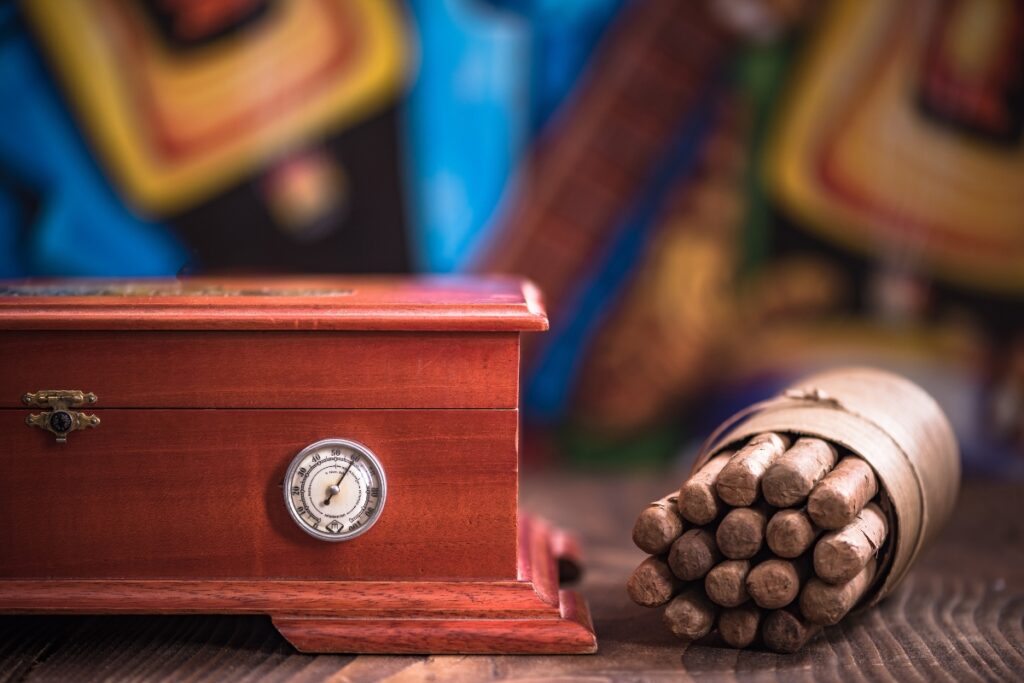
When it comes to aging cigars for ultimate flavor, there are various options available. One popular method is the use of humidors. Humidors are specially designed boxes or cabinets that help regulate the temperature and humidity levels, allowing cigars to age gracefully. These storage solutions come in different sizes and materials, providing a suitable environment for cigars to develop their unique flavors over time.
Another option for aging cigars is the use of aging rooms. These rooms are dedicated spaces with controlled temperature and humidity conditions. Cigar enthusiasts often opt for aging rooms when they have a large collection of cigars that require aging. These rooms can accommodate a significant number of cigar boxes and are ideal for long-term aging.
Aside from humidors and aging rooms, there are other options available to cigar aficionados. Some choose to age their cigars in Tupperware containers or even the original cigar boxes. These methods can be effective as long as the containers are airtight and the cigars are stored in a proper environment.
Proper storage and aging are crucial to achieving the desired flavor profile in cigars. Cigars need a balance of temperature and humidity to age properly. Generally, a humidity level between 65% and 75% and a temperature between 65°F and 70°F are considered ideal for aging cigars. However, it’s important to note that the aging process can vary depending on the type of cigar and personal preference.
Patience is a Virtue: How Long Should You Age Your Cigars?
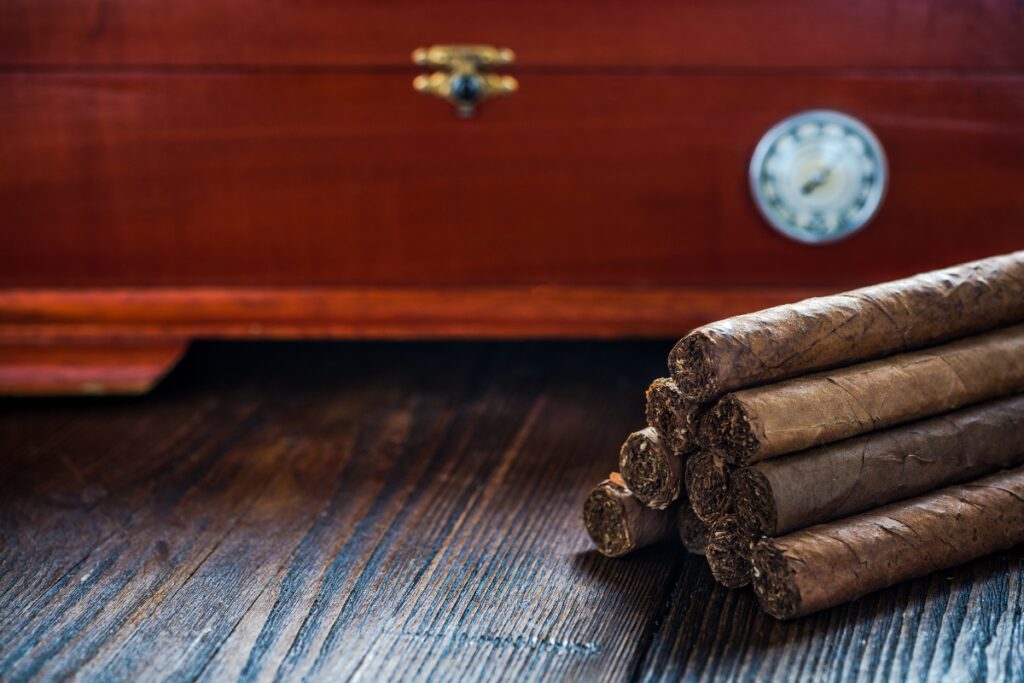
When it comes to cigars, one of the most important factors in achieving the ultimate flavor is the aging process. Patience truly is a virtue in this regard. But how long should you age your cigars to ensure that you’re getting the best possible experience? Let’s dive into the art of aging cigars and find out.
Aging cigars is a delicate balance between time and patience. The process allows the flavors to meld together, resulting in a smoother and more refined smoke. It’s like aging a fine wine or a well-matured cheese – the longer you wait, the better it gets.
The general rule of thumb for aging cigars is to let them rest for a minimum of six months. This allows the tobacco to mature and the flavors to develop. However, many cigar enthusiasts believe that longer aging times can yield even better results.
For those who are new to the world of cigar aging, it’s important to understand that not all cigars are suitable for long-term aging. Generally, cigars made with high-quality tobacco and complex blends are the best candidates for aging. These cigars have the potential to develop deeper flavors over time.
It’s also worth noting that the aging process can vary depending on the cigar’s size, blend, and origin. For example, larger cigars often require more aging time compared to smaller ones. Likewise, cigars with stronger blends might need additional aging to mellow out the harshness.
So, how do you know when your cigars are ready to be enjoyed? The best way to determine this is through experimentation. Try smoking a cigar at different intervals during its aging process, starting from the minimum recommended time. Keep notes on the flavors and aromas you experience at each stage. This will help you identify the sweet spot for each cigar in terms of aging.
Remember, aging cigars is not an exact science. It’s a personal journey that requires trial and error. Some cigar enthusiasts prefer their cigars with a bit of youthfulness, while others enjoy the complexity and smoothness that comes with extended aging.
Aging vs. Fresh: Debunking Myths and Exploring Flavor Developments
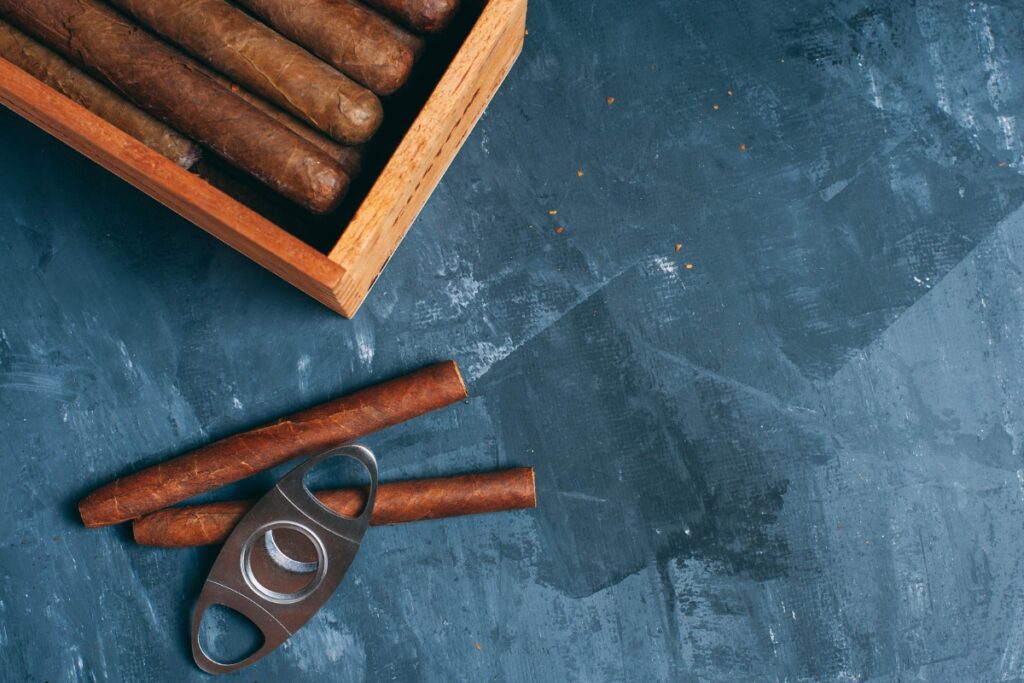
When it comes to cigars, aging is often considered an art, a process that enhances the flavors and complexities of the tobacco. However, there are also those who argue that fresh cigars provide a more vibrant and enjoyable smoking experience.
One of the main myths surrounding aging cigars is that older cigars always taste better. While it is true that aging can mellow out certain flavors and allow the tobacco to develop more nuanced characteristics, not all cigars benefit from extended aging. Some cigars are meant to be enjoyed when fresh, as they showcase the full intensity and complexity of their flavors right from the start.
It’s important to note that the aging process doesn’t necessarily make a bad cigar good. If a cigar is poorly made or has subpar tobacco, no amount of aging can magically transform it into a masterpiece. Aging can only enhance the flavors and qualities that are already present in a well-constructed cigar.
Another common misconception is that all cigars improve with age. While it is true that many premium cigars can benefit from aging, there are also cigars that are meant to be enjoyed immediately after purchase. These cigars are crafted to be enjoyed at their peak freshness, and aging them might actually diminish their intended flavors.
The key to understanding the aging process is to recognize that each cigar is unique. Factors such as the blend, wrapper, and filler tobacco all play a role in determining the ideal aging time for a particular cigar. Some cigars may reach their prime after six months of aging, while others may require years to fully develop their flavors.
Ultimately, the decision to age or smoke a cigar fresh comes down to personal preference. Some smokers enjoy the smoothness and complexity that comes with aging, while others prefer the vibrant and bold flavors of a fresh cigar. There is no right or wrong answer here; it all depends on what you look for in a smoking experience.
Conclusion: Unlocking the True Essence of a Cigar Through Aging
Unlocking the true essence of a cigar through aging is an art that every cigar connoisseur should explore. Aging cigars is a transformative process that elevates the smoking experience to new heights.
By allowing the flavors and aromas to develop and harmonize over time, the true essence of a cigar is unlocked.
Whether you are a seasoned aficionado or a curious beginner, exploring the art of aging cigars is a journey worth embarking on. So, sit back, light up, and savor the rich flavors that come with a perfectly aged cigar.
If you want a cigar that’s been perfectly aged to your personal preferences, Mr. G’s Cigar and Pipe Shop has everything you need, from a wide range of cigar brands and types to accessories, guaranteeing a smooth and enjoyable smoke every time.
Find your ideal cigar brands and accessories through any of our online contact channels or by calling us at (678) 494-6619.
To deepen your cigar-smoking experience, feel free to check out our Cherokee Pipe Smokers Club. This gives you access to members’ only benefits, like a Taster’s Choice of bulk tobacco made up of over 40 types of tobacco, and a place to connect with and share your own cigar experiences and preferences with fellow cigar enthusiasts. Check us out today!
